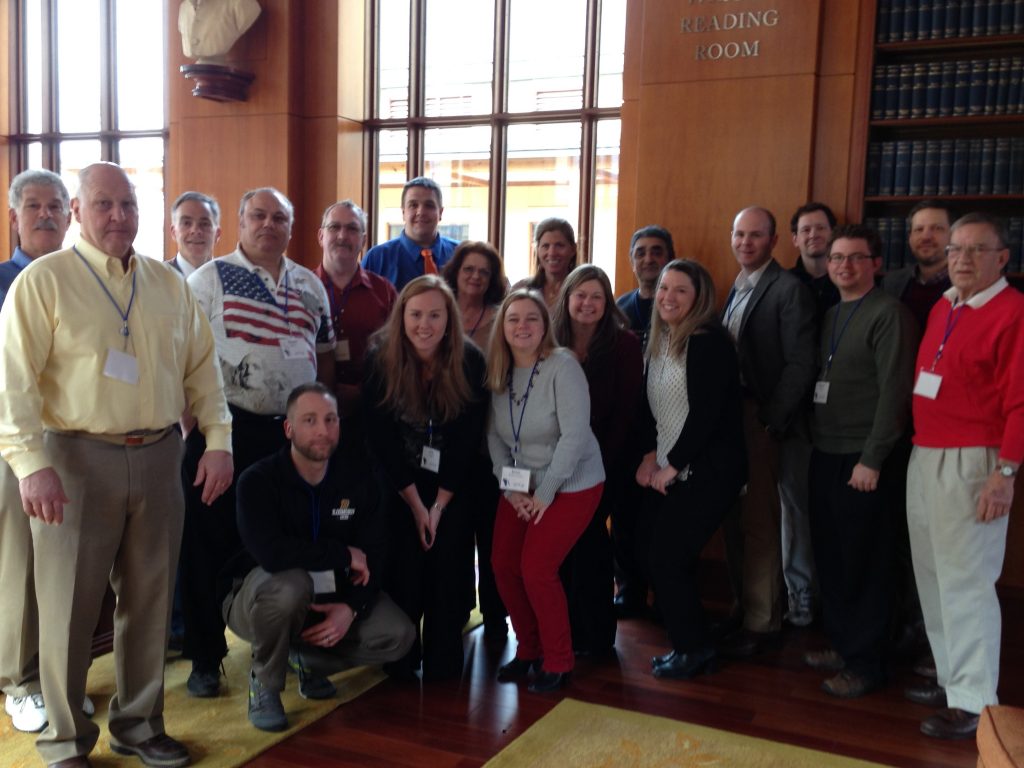Teachers See the Founding through Washington's Eyes
December 24, 2020

A weekend spent in Mount Vernon helped teachers from around the country grasp the unique challenges George Washington faced as he led a new nation. The Ashbrook Center and the Liberty Fund co-sponsored the colloquium, held February 28 – March 2 and attended by 18 teachers from 14 states. Teachers toured the mansion and grounds and were treated to an audience with Martha Washington, who was brought to life by an historical reenactor. But the bulk of the weekend was spent reading and discussing Washington’s own words in notes, diaries, letters, and speeches.

Reading the “Rules of Civility” that Washington copied into his private notebook before the age of 16 and practiced throughout his life, teachers saw how he trained himself to embody courtesy and dignity. In his letters to family, revolutionary officials, and fellows in the work of the Founding, teachers saw his effort to discern the wisest course as he led a revolutionary war toward its uncertain outcome, presided over a convention that would draft an entirely novel Constitution, and served as chief executive of a national experiment in republican government. In Washington’s speeches and proclamations they read his counsel to those who would follow him.
Teachers who participated said the colloquium broke through common stereotypes of Washington. Joseph Csizmadia (Hinckley, Ohio) noted that, unlike the “stoic and distant” figure we encounter in popular history, Washington was brought to life as “a man of many dimensions: an aspiring adolescent, a determined officer, a committed patriot, a caring husband, an innovative planter, a slaveholding gentleman, a faithful executive, and the original American.”
Drew Wendt (Nitro High School, West Virginia) was struck by Washington’s consciousness of the unscripted role he played in history. Wendt quoted Washington’s letter to Henry Lee in 1786: “In our progress towards political happiness my station is new; and . . . I walk on untrodden ground.” The colloquium traced Washington’s realization during the first years following the success of the Revolution that a new Constitution would be needed; it showed Washington looking toward an uncertain future, trying to facilitate the crafting of a regime that would endure. Some of Washington’s words “seemed directed at us”—the teachers concentrating over them in Mount Vernon’s handsome new Karen Buchwald Reading Room—especially his reflection that the Revolution could turn out to be either “a blessing or a curse, not to the present age alone, for with our fate will the destiny of unborn Millions be involved.” Wendt commented, “As one of those unborn millions, I found our vigorous discussion of Washington’s words, as we sat in Washington’s own home, at times to cause chills to run down my arms.”
Csizmadia added, “Teachers and students need to always be on guard against the risk of ‘presentism.’ Visiting Mount Vernon allowed us to be more sympathetic to the complexities of eighteenth century life: independence, revolution, politics, and slavery. We could immerse ourselves in Washington’s historical moment.”
The colloquium was facilitated by Irwin Morris, Professor of Government and Politics at the University of Maryland, and Ashbrook’s Jason Ross. They led participants in discussions that were “structured without being restrictive,” Csizmadia said. As scholars and teachers, he said, they “truly care about both the material and the participants’ experience.”

